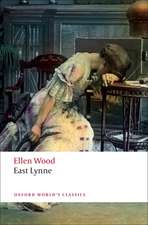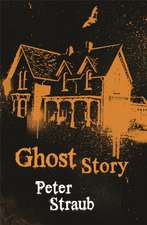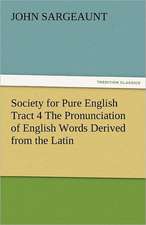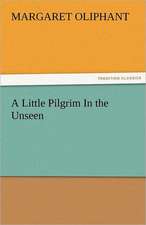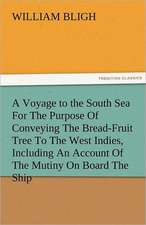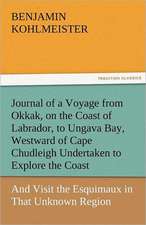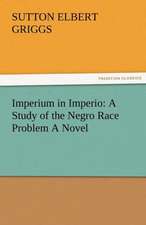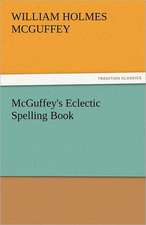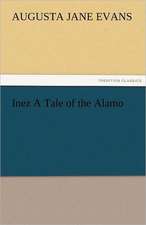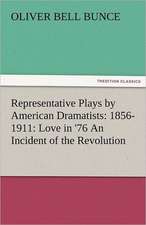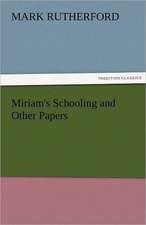Germinal
Traducere de Roger Pearson Autor Émile Zolaen Limba Engleză Paperback – 28 ian 2004
Étienne Lantier, an unemployed railway worker, is a clever but uneducated young man with a dangerous temper. Compelled to take a back-breakin job at Le Voreux mine when he cannot get other work, he discovers that his fellow miners are ill, hungry and in debt, unable to feed and clothe their families. When conditions in the mining community deteriorate even further, Lantier finds himself leading a strike that could mean starvation or salvation for all. The thirteenth novel in Zola's greatRougon-Macquartsequence,Germinalexpresses outrage at the exploitation of the many by the few, but also shows humanity's capacity for compassion and hope.
Translated with an introduction by Roger Pearson in Penguin Classics
If you enjoyedGerminal, you might like Zola'sThérèse Raquin, also available in Penguin Classics.
| Toate formatele și edițiile | Preț | Express |
|---|---|---|
| Paperback (2) | 56.54 lei 11-16 zile | +24.73 lei 6-12 zile |
| Oxford University Press – 10 iul 2008 | 56.54 lei 11-16 zile | +24.73 lei 6-12 zile |
| Penguin Books – 28 ian 2004 | 56.96 lei 22-33 zile | +25.48 lei 6-12 zile |
Preț: 56.96 lei
Preț vechi: 65.63 lei
-13% Nou
Puncte Express: 85
Preț estimativ în valută:
10.90€ • 11.40$ • 9.05£
10.90€ • 11.40$ • 9.05£
Carte disponibilă
Livrare economică 14-25 martie
Livrare express 26 februarie-04 martie pentru 35.47 lei
Preluare comenzi: 021 569.72.76
Specificații
ISBN-13: 9780140447422
ISBN-10: 0140447423
Pagini: 592
Dimensiuni: 129 x 198 x 25 mm
Greutate: 0.41 kg
Ediția:Revizuită
Editura: Penguin Books
Colecția Penguin Classics
Locul publicării:London, United Kingdom
ISBN-10: 0140447423
Pagini: 592
Dimensiuni: 129 x 198 x 25 mm
Greutate: 0.41 kg
Ediția:Revizuită
Editura: Penguin Books
Colecția Penguin Classics
Locul publicării:London, United Kingdom
Notă biografică
Emile
Zola
(1840-1902)
was
the
leading
figure
in
the
French
school
of
naturalistic
fiction.
His
principal
work,
Les
Rougon-Macquart,
is
a
panorama
of
mid-19th
century
French
life,
in
a
cycle
of
20
novels
which
Zola
wrote
over
a
period
of
22
years.
Roger Pearson is professor of French at the University of Oxford. He is the author of critical works on Voltaire, Stendhal and Mallarmé and has translated Voltaire, Zola and Maupassant.
Roger Pearson is professor of French at the University of Oxford. He is the author of critical works on Voltaire, Stendhal and Mallarmé and has translated Voltaire, Zola and Maupassant.
Descriere
Descriere de la o altă ediție sau format:
Zola's masterpiece of working life, Germinal (1885), exposes the inhuman conditions of miners in northern France in the 1860s. By Zola's death in 1902 it had come to symbolise the call for freedom from oppression so forcefully that the crowd which gathered at his State funeral chanted 'Germinal! Germinal!'.The central figure, Etienne Lantier, is an outsider who enters the community and eventually leads his fellow-miners in a strike protesting against pay-cuts - a strike which becomes a losing battle against starvation, repression, and sabotage. Yet despite all the violence and disillusion which rock the mining community to its foundations, Lantier retains his belief in the ultimate germination of a new society, leading to a better world. Germinal is a dramatic novel of working life and everyday relationships, but it is also a complex novel of ideas, given fresh vigour and power in this new translation. ABOUT THE SERIES: For over 100 years Oxford World's Classics has made available the widest range of literature from around the globe. Each affordable volume reflects Oxford's commitment to scholarship, providing the most accurate text plus a wealth of other valuable features, including expert introductions by leading authorities, helpful notes to clarify the text, up-to-date bibliographies for further study, and much more.
Zola's masterpiece of working life, Germinal (1885), exposes the inhuman conditions of miners in northern France in the 1860s. By Zola's death in 1902 it had come to symbolise the call for freedom from oppression so forcefully that the crowd which gathered at his State funeral chanted 'Germinal! Germinal!'.The central figure, Etienne Lantier, is an outsider who enters the community and eventually leads his fellow-miners in a strike protesting against pay-cuts - a strike which becomes a losing battle against starvation, repression, and sabotage. Yet despite all the violence and disillusion which rock the mining community to its foundations, Lantier retains his belief in the ultimate germination of a new society, leading to a better world. Germinal is a dramatic novel of working life and everyday relationships, but it is also a complex novel of ideas, given fresh vigour and power in this new translation. ABOUT THE SERIES: For over 100 years Oxford World's Classics has made available the widest range of literature from around the globe. Each affordable volume reflects Oxford's commitment to scholarship, providing the most accurate text plus a wealth of other valuable features, including expert introductions by leading authorities, helpful notes to clarify the text, up-to-date bibliographies for further study, and much more.
Recenzii
'masterpiece'Oxford Times
'A good translator uses the language of his day; the original text remains fixed, but translations must move with the times. Collier's, though differing from, and not always improving on, Tancock's, is likely to have the same startling effect on the reader coming fresh to it today as his prdecessor's had forty years ago.'F.W.J. Hemmings, French Studies, Vol. 48, Part 4
'A good translator uses the language of his day; the original text remains fixed, but translations must move with the times. Collier's, though differing from, and not always improving on, Tancock's, is likely to have the same startling effect on the reader coming fresh to it today as his prdecessor's had forty years ago.'F.W.J. Hemmings, French Studies, Vol. 48, Part 4

